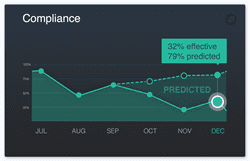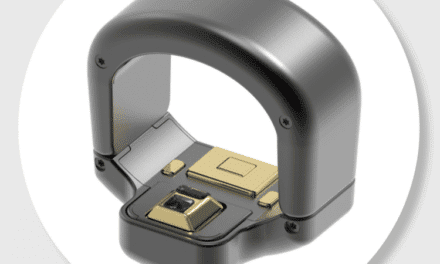Digital health technology company Somnoware announces the addition of predictive analytics to its patient care management module. Using this new feature, sleep physicians can now predict the likelihood of 90-day therapy compliance even before a patient has been initiated on CPAP, oral appliance, or other forms of sleep apnea therapy. The Somnoware platform uses predictive machine learning to estimate a patient’s probability of therapy compliance at any time in future—and dynamically updates it on a daily basis.
Somnoware arms sleep physicians with rich data and insights that enable them to take proactive actions to improve therapy adherence. Instead of having to wait several months to ascertain short-term compliance, physicians can now start taking actions based on the patient’s predicted compliance right after they are put on therapy, the company states.
When a new patient is set up for a diagnostic sleep test, the Somnoware platform automatically pulls detailed patient data from their electronic medical records, patient questionnaires, and prior lab visits. This data includes socio-demographic characteristics, indicator variables, comorbidities, and past patient behavior. Somnoware uses this data to build a machine learning model of the patient, and makes short and long-term predictions of compliance even before the patient goes on therapy. As more data comes in, the model automatically updates its predictions. Hence, physicians can easily monitor trends in patient compliance and the likely impact of their interventions on both immediate and long-term outcomes. This brings patients closer to physicians during long-term therapy.
“The new predictive machine learning feature in Somnoware is yet another example of our commitment to provide sleep physicians with actionable, data-driven insights,” says Raj Misra, PhD, chief data scientist of Somnoware, in a release. “Our goal is to bring valuable information to physicians early, so it can be used for proactive patient care management.”






Since oral appliance compliance iis so much greater than CPAP compliance how does the software make the determination that they won’t comply with CPAP but will with the oral device?
Thanks for your note Dr. Blumenstock! The underlying predictive algorithm takes into account the specific therapy that a patient is placed on. So, on average, oral compliance rates across a patient population may be higher than CPAP rates but individual patient compliance would still vary within those sub samples based on specific patient characteristics.